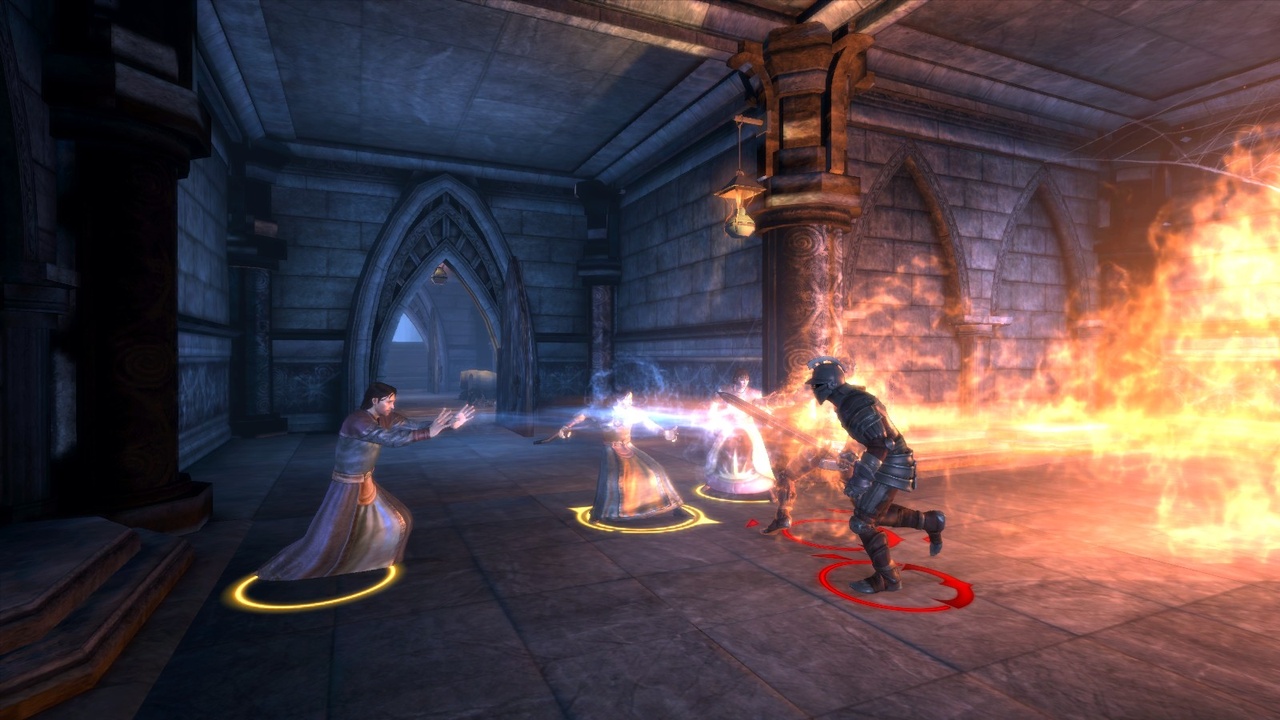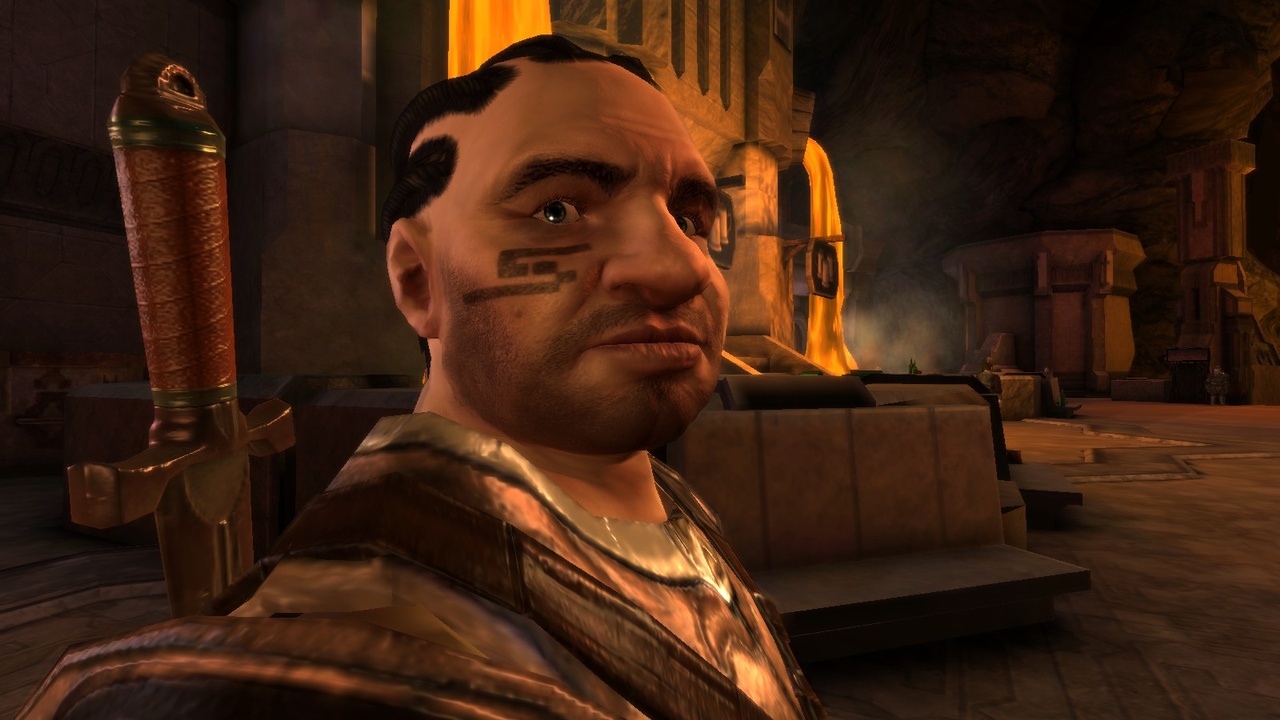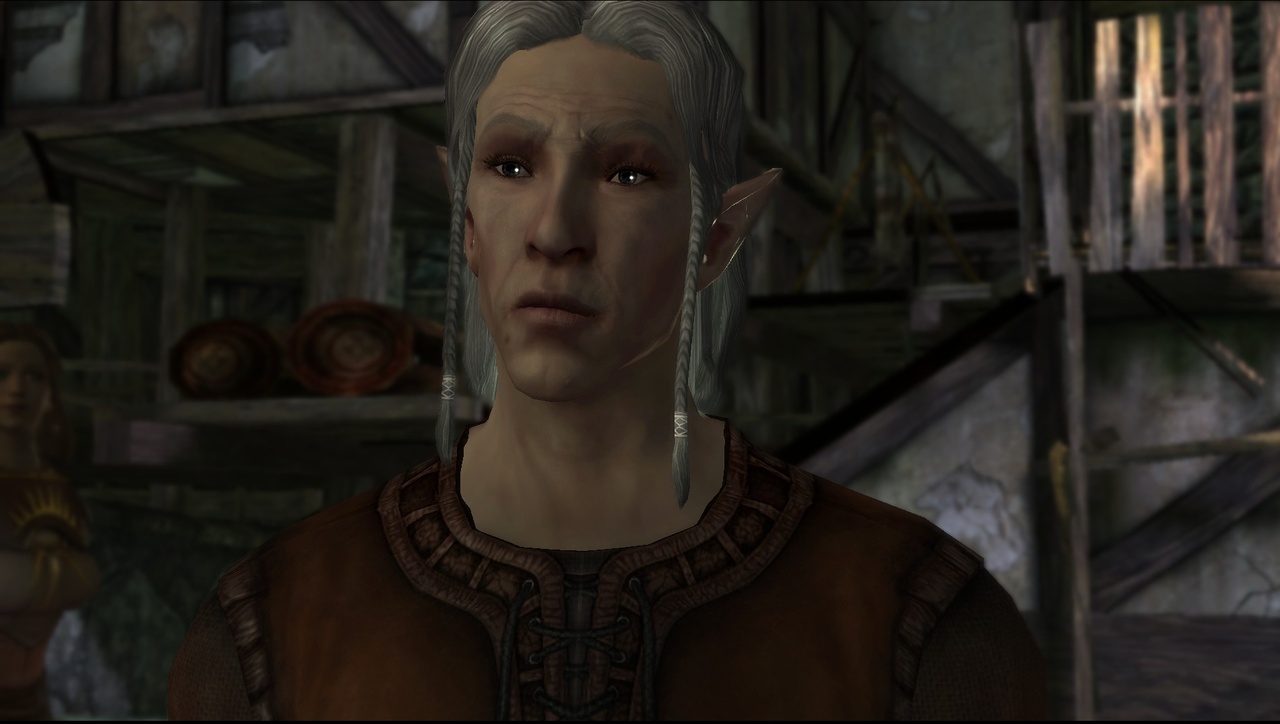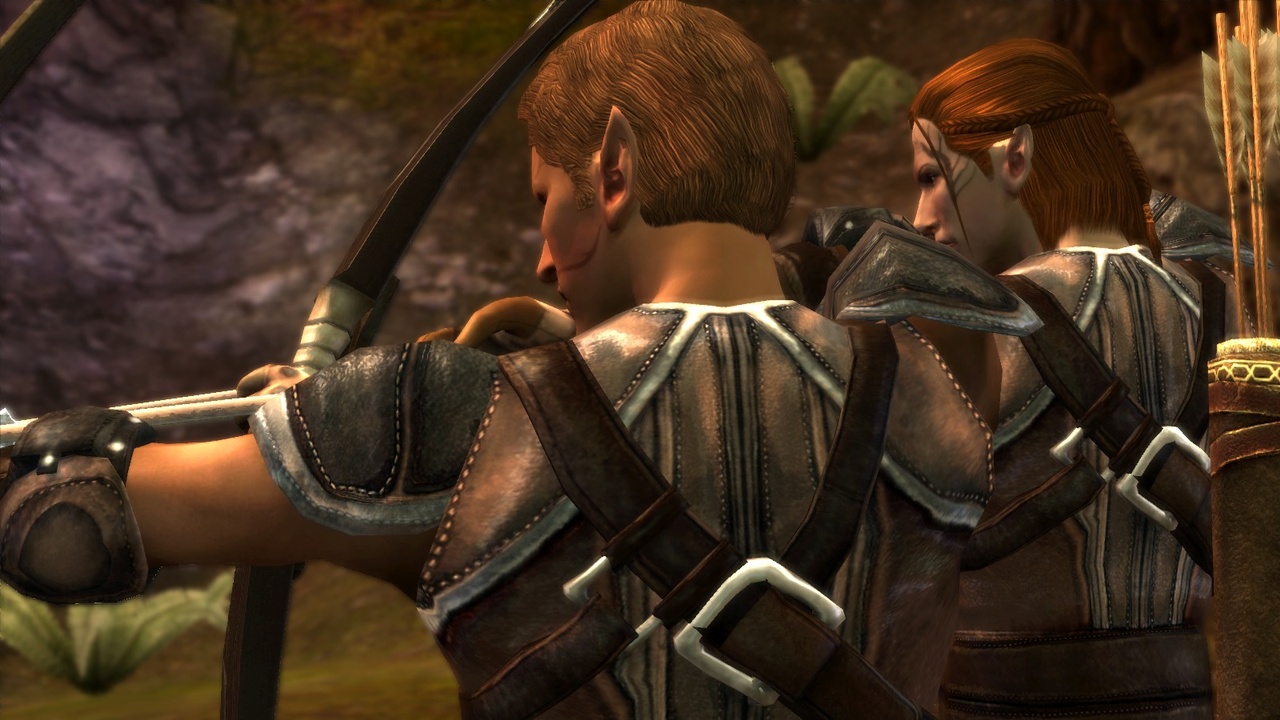Dragon Age: Origins Updated Q&A - Dragons, Character Development, and Adventuring Parties
BioWare executive producer Dan Tudge answers some, but not all, questions about dragons, character development, adventuring parties, and side quests.
The upcoming role-playing game Dragon Age: Origins will be an all-new adventure, but a spiritual follow-up to developer BioWare's classic Baldur's Gate fantasy role-playing series. Like in those games, you'll create an individual character, then venture into a dark fantasy world and recruit additional companions to your side while fighting your battles with the real-time-with-pause system used in games like Baldur's Gate and Star Wars: Knights of the Old Republic. However, the new game will offer in-depth "origin" stories for your character and will take place in an all-new fantasy world crafted by BioWare. This time around, executive producer Dan Tudge offers some tantalizing hints on character development, side quests, and dragons.
GameSpot: For a game named "Dragon Age," we sure haven't seen too many dragons...until now. Tell us about the dragons in the game. Who and what are they? What part will they play in the story?
Dan Tudge: There are different kinds of dragons in the game, ranging in size from large to "I can't believe I'm actually fighting something this huge!" One of the cool features in Dragon Age: Origins is large creature combat, so players can expect some pretty epic battles if a dragon is involved. As for their role in the story, dragons were once worshipped as deities, but "the maker" shackled them under the earth to sleep for all time. The darkspawn, who dwell underground, search for these "old gods," and when they find one, they corrupt the dragon with their taint, transforming it into an archdemon that commands the darkspawn to the surface, unleashing a devastating "blight" on the world. It will be up to you, as one of the last remaining Grey Wardens, to stop it.

GS: We recall from our previous jaunts in BioWare games that fighting dragons wasn't exactly a walk in the park--they were extremely powerful foes that ignored the attacks of simple magic spells and required a great deal of preparation, strategy, and even a bit of luck to overcome. How powerful will the dragons of Dragon Age: Origins be, and if they end up at odds with your character, what kind of prep and strategy will players need to take them on?
DT: I won't lie to you: bringing down a dragon is pretty tough, but if you can do it, the payoff is worth it. Combat is party-based, so you can choose to have some very powerful allies in your party, each with their own unique abilities that you can combine to give yourself some tactical advantages. Some strategies that work well are things like buffing your party at the start of combat (especially your warriors) to make them tougher in battle and also keeping your mages at a safe distance. You'll have to experiment to see what kind of strategy works best for you, but one thing I find useful is the "pause and play" system. The ability to freeze the game and examine the situation from different angles can give you some great ideas on how to shift the odds in your favor.
GS: Now that we've been introduced to some of the characters we'll meet in the game, let's talk about the character classes. For instance, if players are interested in picking up a sword, walking right up to their foes, and beating them senseless, what professions will be available, and how will they differ?
DT: You start the game by picking from one of three base classes: fighter, mage, or rogue. If you're into the melee-focused "beat them senseless" style of play, you'll love playing as a fighter. As you progress, you'll be able to further customize your fighter by choosing which talents to develop (and there are a lot to choose from, many unique to each class). Eventually you'll be able to specialize, and each specialization unlocks new sets of skills. It's a very robust system, allowing you to truly develop your hero the way you want.
GS: For players who prefer to be stealthy and operate from the shadows, what career paths will be available? How will they differ?

DT: You can do some pretty amazing things as a rogue. One tactic I like to use is the rogue's ability to go into a stealth mode that makes him/her pretty much invisible to enemies. Once in stealth mode, I can use another rogue talent of setting traps near some unsuspecting enemies. When I exit stealth mode, the enemies see me and come charging...right into the trap and back to the main party for an ambush. But the rogue has some pretty deadly combat moves too. For example, if you can position your rogue right behind an enemy in combat, you can have him backstab for some devastating damage.
GS: For players who prefer to wiggle their fingers and have sparkly magic thingies come off of their fingers, what career options will be available?
DT: It's not quite time to reveal the different paths a mage can take, but trust me when I say that there are some very unique ways to develop your mage. Don't forget that Dragon Age: Origins is a dark, heroic fantasy, and there are some pretty twisted things you can choose to do with the magic you wield. Magic is one of the deadliest and most powerful elements in the world of Dragon Age, and there are reasons why the templars keep a close watch on mages, but more about that later.

GS: One of the hallmarks of BioWare's party-based games is that no matter what sort of character we create to start the game with, we usually meet complementary "follower" characters to build out our party--for instance, in previous games, if we decided to play a weak, robe-wearing wizard, there was usually a big, strong warrior or two for hire to help us out. How is the cast of Dragon Age kitted out to complement the player's choice of origin story?
DT: There are many interesting people you will meet as you travel through Ferelden, and many will join your party. No matter who you choose to join your party, you can be sure that they will each have their own unique personalities and agendas which will influence how they behave towards you, depending on your choices throughout the game. It's totally up to you who you want to have in your party, and different combinations of certain party members can lead to some very interesting banter, dialogue options, side quests, and even romances.
GS: We know that Dragon Age will continue the BioWare tradition of focusing strongly on an immersive story, and we understand Dragon Age will include many emotionally charged moments. How will the game create these moments? We know, for instance, that BioWare has been using cinematic camera cuts since KOTOR, and strongly emphasizing facial animations on the character models (or "digital actors," as BioWare has referred to them) in Mass Effect. Without spoiling things, tell us about some of the elements that will facilitate storytelling.
DT: There are lots of ways we create those emotionally charged moments; in fact, you get one of those moments right out of the gate with your choice of origin story. Each origin story builds to that one unique moment that defines your personal motivation for becoming a Grey Warden, and it's different in each origin story. Throughout the game, you'll also be faced with lots of tough, moral decisions that are not morally clear (I often call them the "20-minute decisions," because that's how long you end up staring at the computer trying to decide what to do). And of course, there are the characters you'll meet and form some pretty deep relationships with. It's easy to get emotionally attached to these characters, and that's one of the best ways Dragon Age immerses you into the story.
GS: We understand that the idea behind the origin stories is to give different players (who choose different characters) completely different experiences. Given that the origin stories will provide a different starting experience, how does the structure of the rest of the game hold up to replays? How different will the full game be the second time around? How much of the story branches off in different ways to provide a newer experience each time?
DT: I couldn't tell you the exact number of times the story branches in the game, but I can tell you that your experience is going to change from replay to replay depending on so many different factors, including your choice of origin story, race, class, gender, dialogue choices, and even party dynamics, to name just a few. One single play-through alone [will be] a long game, and even then you won't have seen everything in the game, so there is a lot of replay [value] in Dragon Age: Origins. The fans are paying good money for this game, so we want to pack as much bang for their buck into this game as possible.
GS: BioWare games also traditionally have plenty of optional content that players aren't required to complete in order to finish the game but that gives completists lots of things to do, such as side quests and assemble-able objects. About how many hours' worth of side content will Dragon Age offer players? Give us a sense of some of the fun side stuff we'll be able to do.
DT: We're not [revealing] total hours of gameplay...yet. However, there is a lot to see and do in Dragon Age: Origins. It would take me forever to talk about all the side content there is, but one of my favorite things are the things that are revealed depending on how you've developed your relationship with certain party members. If you gain a high enough approval with someone, they could tell you something more personal, and elements of their past may appear in the form of side quests, which in turn may even unlock new abilities for that character.

GS: Finally, is there anything else you'd like to add about Dragon Age's dragons, characters, story, or side content?
DT: Fans who want to get an early insight into the world of Dragon Age should keep their eyes out for the prequel novel, Dragon Age: The Stolen Throne, which will be available March 3. It's written by David Gaider, who is also the lead writer of the game, and it gives a great introduction to the lore and history of Dragon Age, as well as some amazing insight into some of the characters you'll eventually meet in the game.
GS: OK. Thanks, Dan.
Got a news tip or want to contact us directly? Email news@gamespot.com
Join the conversation